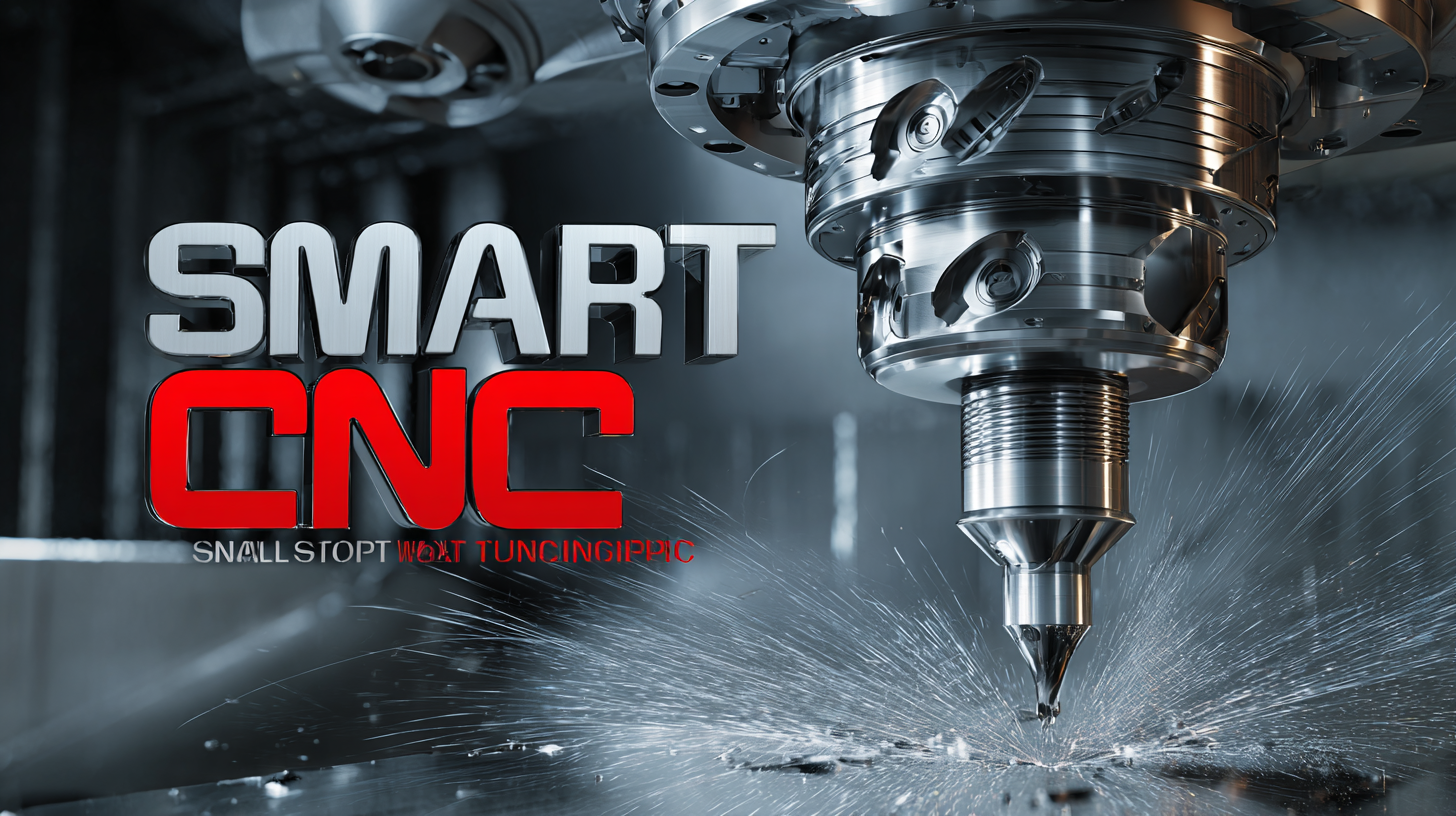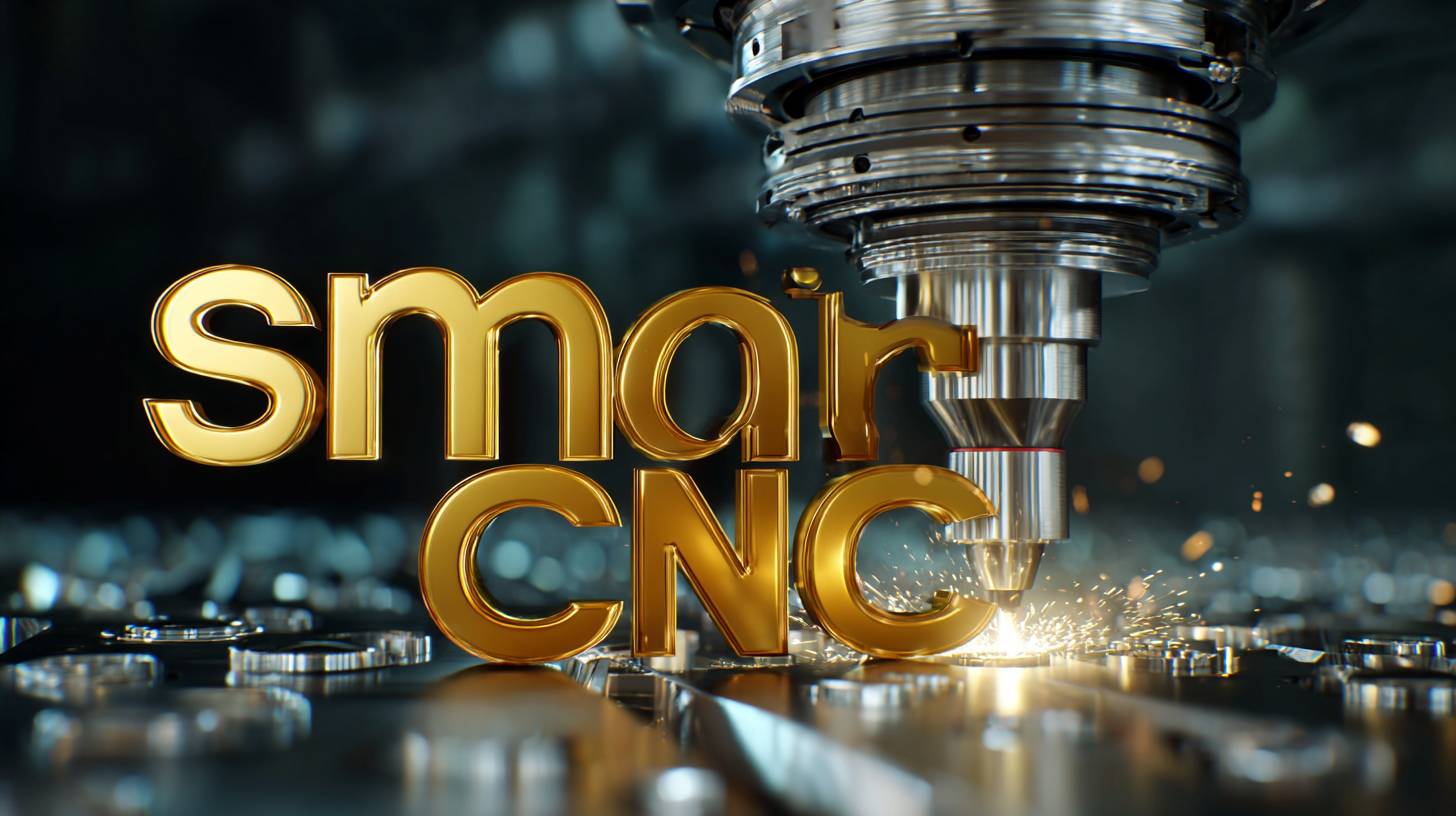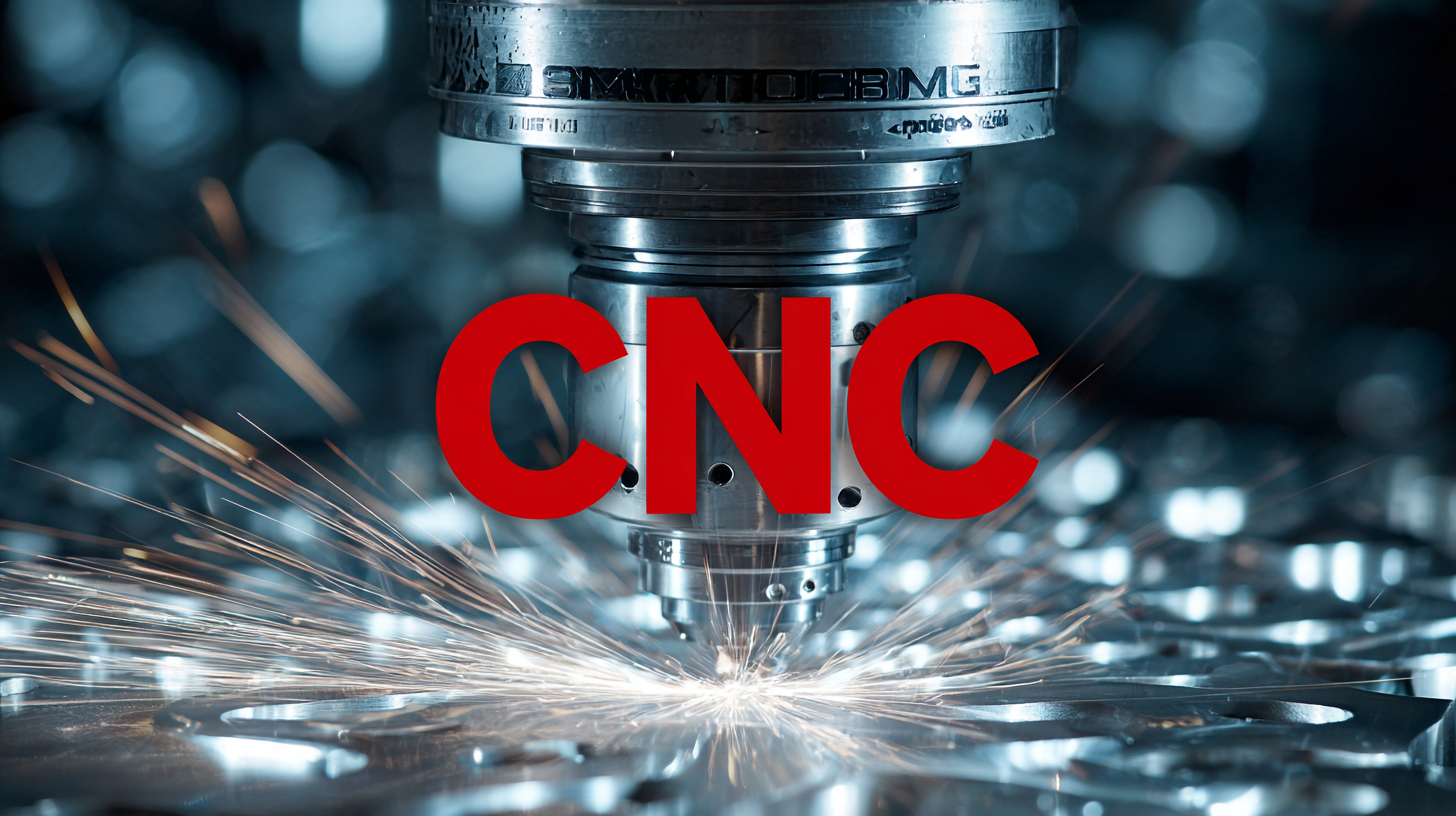Discovering the Advantages of the Best Smart CNC Technology for Modern Manufacturing
In today's fast-paced manufacturing landscape, the integration of technology has become essential for enhancing productivity and precision. Smart CNC, or Computer Numerical Control technology, has emerged as a game-changer, offering unprecedented advantages that traditional manufacturing processes cannot match. According to a report by MarketsandMarkets, the global CNC machine market is projected to reach $100 billion by 2026, driven by the growing demand for automation and efficiency across various sectors. Smart CNC systems enhance operational capabilities by utilizing advanced algorithms, IoT connectivity, and real-time data analytics, resulting in improved machining accuracy and reduced downtime. As manufacturers seek ways to remain competitive, embracing smart CNC technology not only streamlines operations but also paves the way for innovative practices that meet the increasingly complex demands of the industry.

The Evolution of CNC Technology and Its Impact on Global Manufacturing
The evolution of CNC technology marks a significant transformation in global manufacturing, responding to the increasing demands for precision, efficiency, and automation. As we delve into this evolution, it’s crucial to recognize how advanced CNC systems integrate with artificial intelligence to enhance production capabilities. The projected growth of the CNC machine market, from $101.22 billion in 2025 to $195.59 billion by 2032 at a CAGR of 9.9%, reflects the escalating investment in smart manufacturing technologies.
Tips for manufacturers looking to leverage CNC advancements include investing in training for staff to ensure they understand the intricacies of modern machines and adopting AI-integrated solutions that optimize operations. Furthermore, staying updated on market trends and emerging technologies can empower businesses to remain competitive in this rapidly evolving landscape.
As the metal machining market expands, driven largely by sectors such as oil and gas, manufacturers should also consider how the integration of smart CNC technology can streamline processes and reduce costs. Embracing these innovations not only enhances product quality but also fosters a sustainable operational model in the long run.
Key Features of Smart CNC Systems That Enhance Productivity and Efficiency
 Smart CNC systems represent the cutting edge of manufacturing technology, offering features that significantly enhance productivity and efficiency. One of the most notable advantages is automation. By integrating advanced algorithms and AI, these systems can optimize machining processes in real-time, reducing downtime and maximizing output. The ability to perform complex multi-axis operations with precision ensures that manufacturers can produce high-quality components swiftly.
Smart CNC systems represent the cutting edge of manufacturing technology, offering features that significantly enhance productivity and efficiency. One of the most notable advantages is automation. By integrating advanced algorithms and AI, these systems can optimize machining processes in real-time, reducing downtime and maximizing output. The ability to perform complex multi-axis operations with precision ensures that manufacturers can produce high-quality components swiftly.
Incorporating IoT connectivity into CNC systems facilitates seamless data transfer and monitoring. This connectivity allows for predictive maintenance, meaning that potential issues can be identified before they lead to machine failures, thus minimizing unplanned interruptions. Furthermore, digitalization solutions empower operators with valuable insights that enhance decision-making on the shop floor.
Tips for maximizing the benefits of smart CNC systems include regularly updating software to take advantage of the latest algorithms and features. Additionally, training staff on new technologies can improve operational efficiency and ensure that they are equipped to utilize the advanced capabilities of these machines effectively. Lastly, embracing sustainability initiatives within CNC operations can not only contribute to environmental goals but also enhance the overall market competitiveness of manufacturers.
How Chinese Innovations Are Leading the Charge in Smart CNC Solutions
As the global CNC machine market is projected to expand from $101.22 billion in 2025 to $195.59 billion by 2032, with a CAGR of 9.9%, it is evident that innovations, particularly from China, are significantly shaping the future of manufacturing. The Asia Pacific region, with China at the forefront, is anticipated to reach a machine tools market size of $33.40 billion by 2033, capturing 40.5% of the regional share. This growth can be attributed to China's enhanced innovation capabilities within its universities and domestic companies, positioning it as a leading innovator in advanced industries.
Tips: To leverage the benefits of smart CNC technology, manufacturers should invest in training for their workforce to ensure they can fully utilize these innovations. Moreover, small to medium-sized enterprises can enhance their operational efficiency by adopting entry-level CNC solutions that integrate smart technologies without substantial capital investment.
China's rapid advancements are not limited to CNC machines alone; they also extend into robotics and other automated technologies. While China is still on the journey to become a leader in robotic innovation, the domestic production and uptake are increasing swiftly, ensuring that the nation remains a key player in the smart manufacturing landscape. By keeping abreast of these developments, companies can better align their strategies with emerging market opportunities.
Advantages of Smart CNC Technology in Modern Manufacturing
This chart illustrates the key advantages of Smart CNC Technology in modern manufacturing. With a focus on increased efficiency, cost savings, precision, flexibility, and innovation, it highlights how these factors contribute to the ongoing evolution of the industry.
Real-World Applications: Case Studies of Successful Smart CNC Implementations
Smart CNC technology has revolutionized modern manufacturing by enhancing precision and efficiency. One prime example can be found in a case study of a leading automotive parts manufacturer that adopted smart CNC machines to streamline their production line. By integrating IoT capabilities with advanced CNC systems, they achieved real-time monitoring and predictive maintenance, which reduced downtime and increased productivity. This implementation allowed them to quickly adjust to shifting demands in the market while maintaining high standards of quality.
Another notable case is a small aerospace component manufacturer that faced challenges with complex design requirements. By utilizing smart CNC technology, they were able to automate intricate machining processes, significantly reducing production time. The integration of AI-driven software enabled the company to optimize tool paths and minimize waste, further enhancing their operational efficiency. The successful deployment of smart CNC in both large and small manufacturing settings underscores the versatility and potential of this technology to transform traditional practices and deliver substantial competitive advantages in the industry.
Discovering the Advantages of the Best Smart CNC Technology for Modern Manufacturing - Real-World Applications: Case Studies of Successful Smart CNC Implementations
| Case Study | Industry | Technology Used | Improvements Achieved | Key Benefits |
|---|---|---|---|---|
| Automotive Part Manufacturer | Automotive | High-Speed Machining CNC | 30% reduction in cycle time | Increased productivity, enhanced precision |
| Aerospace Components Producer | Aerospace | Multi-Axis CNC | 20% improvement in part accuracy | Enhanced safety, reduced waste |
| Medical Device Manufacturer | Medical | Smart CNC with IoT Integration | Reduction in material costs by 15% | Real-time monitoring, improved product quality |
| Precision Tooling Firm | Tool Manufacturing | Automated CNC with AI Optimization | 15% efficiency gains in operations | Reduced human error, lower operational costs |
Future Trends in Smart CNC Technology and Their Implications for Manufacturers
The landscape of modern manufacturing is rapidly evolving, driven by advancements in Smart CNC technology. As we approach 2025, the global market for embedded industrial systems is estimated to reach $39.48 billion, with projections soaring to $68.33 billion by 2033. This growth, at a compound annual growth rate of 7.1%, emphasizes the vital role of precision component manufacturing in this transformation. The integration of smart technologies enables manufacturers to enhance efficiency, reduce waste, and improve product quality through precise machining and automation.

Future trends highlight the Industrial Internet of Things (IIoT) as a central force in advancing smart manufacturing. By leveraging a five-layer IIoT architecture, companies can achieve higher operational efficiency and agility. The synergy between the IIoT and CNC systems facilitates real-time data monitoring, predictive maintenance, and streamlined workflows. As manufacturers embrace these technologies, they stand to gain a competitive edge, positioning themselves for success in an increasingly digitalized market. The opportunities within the precision components sector, backed by emerging technologies, will become pivotal in shaping the future of manufacturing.
 English
English  Česká republika
Česká republika Deutsch
Deutsch Dutch
Dutch Polska
Polska

